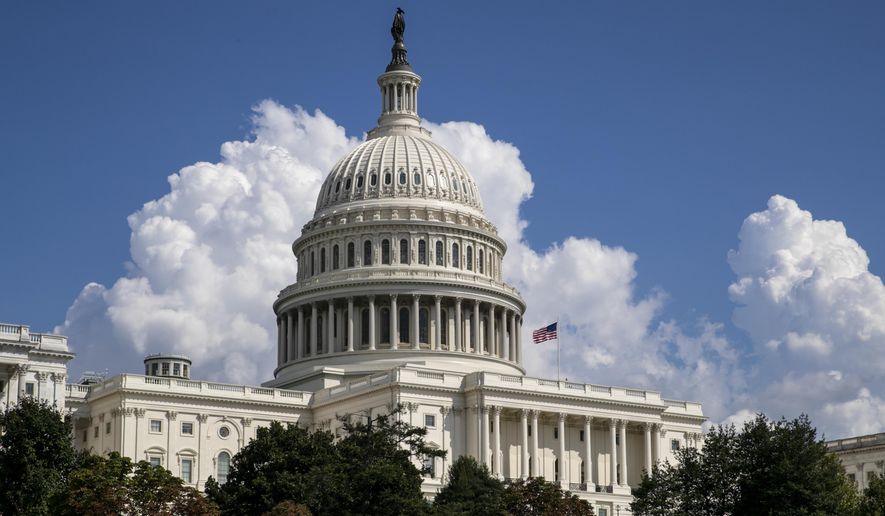At least 90 former members of Congress since 2000 have gone to work lobbying as foreign agents, according to a report from the Quincy Institute.
Foreign interests in Turkey enlisted the most former lawmakers, 16, with governments and groups in South Korea, Taiwan, Saudi Arabia and China not far behind.
The Quincy Institute research identified some prominent former Democratic lawmakers performing “perfectly legal influence work” at the behest of Turkish interests. They include former Senate Majority Leader Tom Daschle of South Dakota, former House Majority Leader Richard Gephardt of Missouri and former Rep. Bart Stupak of Michigan.
“Together, they aided Turkey’s efforts to influence U.S. arms policy towards Turkey, extradite exiled Turkish dissident Fetullah Gulen, and drum up opposition towards the People’s Defense Units, a predominantly Kurdish militia group in Syria that is also supported by Washington,” the report stated. “Many of these former elected officials and their firms also lobbied against U.S. recognition of the Armenian genocide — which eventually took place in April of 2021 — warning that the ‘seriousness of the genocide issue’ poses “a potential threat to the U.S./Turkey relationship.”
It is not just Democrats cashing foreign interests’ checks. The Quincy Institute pointed to former Sen. David Vitter, Louisiana Republican, doing work for Hikvision, a Chinese state-owned video surveillance company.
Former Sen. Norm Coleman, Minnesota Republican, went from the Senate Foreign Relations Committee to representing the Royal Embassy of Saudi Arabia, the report noted.
SEE ALSO: Chinese posed as local Texans online to target rare earth producer
“As a Saudi lobbyist, Coleman played a central role in working to rehabilitate Saudi Arabia’s image following the brutal 2018 murder of Washington Post journalist Jamal Khashoggi and the Saudi role in the disastrous war in Yemen,” the researchers wrote.
Of the 90 former lawmakers, 49 are Republicans and 41 are Democrats, the researchers said.
The report said an OpenSecrets analysis found that China had spent more on foreign agent registrants than any other country since 2016.
“As spending has accelerated, so has China’s practice of hiring former lawmakers, with seven former members representing their interests in the past four years alone,” the report said.
Quincy Institute research fellow Ben Freeman said the number of former lawmakers working as foreign agents was higher than he and fellow researcher Nick Cleveland-Stout anticipated.
Mr. Freeman sees a national security risk with former federal lawmakers teaming up with foreign nations because of how sensitive information the lawmakers amassed in office could slip into foreign adversaries’ hands.
SEE ALSO: U.S. Pacific commander: China targeting military C2
“I think first and foremost there’s at least the potential for a national security risk here in that when we’re talking about former members of Congress, we’re talking about people who had access to classified information,” Mr. Freeman said. “And in some cases, we’re talking about people who had access to highly classified information, including military operations, intelligence operations overseas, or even domestic national security threats here in America.”
Mr. Freeman said he was surprised to find so many people doing work on behalf of Turkey, particularly in recent years. He said he detected an uptick in the number of former lawmakers registering as foreign agents after 2016, when enforcement of the Foreign Agents Registration Act increased.
Some former lawmakers worked for multiple foreign interests. Foreign agent registration documents from 2019 show that Mr. Stupak was working for Turkey and interests in Qatar and Hong Kong and that Mr. Vitter’s paperwork from 2022 showed his work for Hikvision alongside his representation of entities connected to Zimbabwe and Russia.
Mr. Daschle, Mr. Stupak and Mr. Vitter did not respond to requests for comment on the Quincy Institute’s report. Mr. Coleman and Mr. Gephardt also did not respond immediately on Wednesday.
A majority of the former federal lawmakers who became foreign lobbyists, 57, have worked on behalf of authoritarian regimes, identified as those rated “not free” by the nonprofit Freedom House. These interests included countries such as China and Saudi Arabia.
Mr. Freeman said he thinks foreign influence is a bipartisan problem that federal lawmakers will need to work across the aisle to resolve.
“A foreign power doesn’t care if you’re a Republican or a Democrat. All they care about is if you’re willing to do what they need to get done,” Mr. Freeman said. “So if the influence coming in is bipartisan, the response from America, the response from Congress — it too has to be bipartisan.”
Mr. Freeman is a proponent of the Fighting Foreign Influence Act, which aims to restrict former federal lawmakers and other U.S. officials from lobbying for foreign principals.
The bill, introduced earlier this month, includes bipartisan co-sponsors: Democratic Reps. Jared Golden of Maine and Katie Porter of California, and Republican Reps. Paul A. Gosar of Arizona and Lance Gooden of Texas.
The bill would also require nonprofits and think tanks to disclose high-dollar gifts from foreign entities and would require political campaigns to verify that donors have valid U.S. addresses, Mr. Golden’s office said.
• Ryan Lovelace can be reached at rlovelace@washingtontimes.com.




Please read our comment policy before commenting.